Transportation Industry is Navigating a Sea of Change
The landscape of Canada’s Less-than-Truckload (LTL) transportation industry is constantly evolving, presenting both challenges and opportunities for the industry. From economic softening and supply chain disruptions to digital transformation, sustainability initiatives, and workforce challenges, the Canadian LTL industry is facing a lot of change.
Several topics are driving conversations within Canada’s LTL transportation world, highlighting how the industry is navigating challenges while capitalizing on emerging opportunities for growth and improvement. Here are the key trends shaping the transportation industry:
Economic Softening
The Canadian LTL industry continues to face economic softening, influenced by inflation, fuel costs, and fluctuating demand. Uncertain economic conditions, both globally and domestically, also lead to consumer caution, resulting in less spending and reduced freight volumes. Prioritizing operational efficiency and customer retention is paramount for navigating economic softening. In navigating these turbulent economic waters, Canadian trucking companies must prioritize strategic planning to weather the downturn and position themselves for future growth opportunities.
Adapting to Supply Chain Disruptions
Disruptions in the supply chain, such as port congestion and extreme weather events, continue to impact LTL transportation in Canada. Agility in supply chain management has become critical for transportation companies to navigate these challenges effectively. Maintaining a robust contingency plan that includes emergency protocols and staff training ensures readiness to respond swiftly to unexpected events. Fostering a culture of continuous improvement and adaptation within the organization also helps the company stay agile and responsive in the face of supply chain disruptions.
Embracing Sustainability Initiatives
There’s a growing emphasis on sustainability within the transportation sector. Companies are exploring eco-friendly practices, including alternative fuels and optimized routing, to reduce carbon footprints. Detailed ESG (Environmental, Social, and Governance) reports are becoming essential for demonstrating environmental responsibility and attracting customers who prioritize sustainability.
Technological Advancements and Digital Transformation
Technological innovations are reshaping the LTL landscape through tools like predictive analytics and digital freight management platforms. Integrating these technologies enhances operational efficiency and improves the customer experience by providing real-time shipment tracking and streamlined logistics. Moving away from paper bills of ladings to Electronic Data Interchange (EDI) and Application Programming Interface (API) reduces manual work and improves data accuracy. Robust cyber security programs are also critical. LTL companies manage vast amounts of sensitive data, including customer information, shipment details, and operational data. Protecting this information from cyber threats is paramount to safeguarding customer trust, maintaining regulatory compliance, and ensuring operational continuity.
Addressing Workforce Challenges
Labour challenges in the industry pose significant hurdles. An aging workforce, driver shortages, and increasing competition for skilled personnel add to this problem. Companies are putting a lot of effort into recruitment efforts, offering competitive wages and benefits packages and signing bonuses to attract and retain qualified drivers and logistics personnel. Successful companies also invest in training and development programs to upskill existing employees and fill critical roles. Fostering a positive workplace culture that values safety, work-life balance, and career advancement opportunities is crucial in improving retention rates and employee satisfaction. By proactively addressing labour challenges, Canadian LTL companies will build resilient teams capable of navigating the industry’s evolving demands while maintaining high customer service standards.
Meeting Customer Expectations Through Service Excellence
Customers’ expectations increase in a competitive marketplace. Offering flexible shipping options, including expedited services and tailored delivery schedules, allows providers to cater to diverse customer needs. Investing in customer service excellence through responsive support teams and personalized interactions further enhances the overall customer experience. By consistently delivering on these aspects, LTL providers can meet and exceed customer expectations, fostering loyalty and differentiation in a competitive market.
The Canadian LTL transportation industry is navigating a complex landscape characterized by economic fluctuations, technological advancements, and evolving customer expectations. By embracing innovation and resilience, companies can seize opportunities for growth while effectively addressing challenges.
Manitoulin Transport prioritizes operational efficiency, customer-focused solutions, advanced technologies, and comprehensive training. Manitoulin ensures consistent service reliability despite unpredictable market conditions, solidifying its reputation as a dependable transportation partner.
Share Article
Related Articles
Transportation Industry is Navigating a Sea of Change
In the dynamic landscape of modern business, the relationship between customers and their suppliers forms the backbone of successful operations. Efficient communication, seamless transactions, and collaborative partnerships are essential for driving mutual growth and competitiveness.
Enhancing Customer-Supplier Dynamics: The Benefits of EDI and API in Business
In the dynamic landscape of modern business, the relationship between customers and their suppliers forms the backbone of successful operations. Efficient communication, seamless transactions, and collaborative partnerships are essential for driving mutual growth and competitiveness.
Winter Roads: A Lifeline for Remote Communities’ Supply Chains
Winter roads play a pivotal role in sustaining remote communities that face unique challenges in maintaining their supply chains throughout the year. These communities contend with harsh weather conditions, geographical isolation, and limited infrastructure, making winter roads indispensable during the cold winter months.




